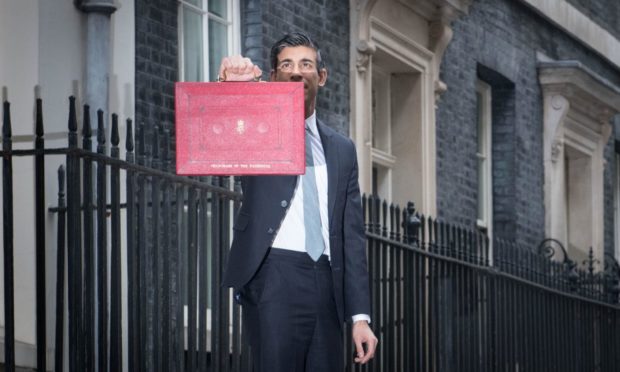Homebuyers across the UK will benefit from a government pledge to guarantee 95% mortgages.
Chancellor Rishi Sunak used the budget to announce plans to help turn “generation rent into generation buy” by allowing them to get on the property ladder with just a 5% deposit.
He also announced that the threshold for stamp duty, a tax on property sales, will remain at £500,000 until 30 June, before dropping to £250,000 at the end of September when it will halve again to its original level.
The chancellor was pressured to extend the deadline because so many vendors were desperately trying to complete their purchases before the end date.
However Stamp Duty is only applicable in England and Northern Ireland, and local property experts are now calling on the Scottish Government to follow suit with the Scottish equivalent, the Land and Buildings Transaction Tax (LBTT).
Lower unemployment prevents housing crash
Jim Parker, managing director of Fife Properties, said failure to do so could cause cross-border resentment between homebuyers.
He said: “The Scottish Government have to follow some sort of suit (LBTT) – purely because you can’t expect everyone to get to the end of March and fall off a cliff edge.
“The right thing to do would be to follow suit. I wouldn’t be surprised if the Scottish Government go one stage further with an extra measure.
“For example, if you have committed to buying your house – by signing the missives – by the end of June they’ll let you have the duty, even if the paperwork is still to be finished.”
He added that Mr Sunak’s revelation that unemployment levels had not been as bad as previously feared was also good for the property market.
“They are coming in at just over 6% in their predictions – if that is accurate that will be extremely good for the housing market,” he said.
“If people still have jobs they’ll not lose their house – there’ll not be mass repossessions. What happened in Fife in the 2008 crash was a lot of people lost their jobs and lost their houses as a result. House prices crashed because a flood of properties came on the market at the same time.
“That’s not happened this time and that’s not predicted to happen as people will still have jobs as the furlough scheme has been extended.
“It’s good news for the housing market overall.”
Mortgage pledge could stimulate the property market
Peter Ryder, managing director of Thorntons Property Services, said it would be interesting to see how the Scottish Government reacted to the extension of the Stamp Duty relief as they had previously indicated the LBTT holiday would end in March.
He said: “They are not under the same pressure to do this as England due to the differences in the legal systems so I suspect they will continue with their original decision.”
He added: “The chancellor’s announcement that first time buyers will get a government guarantee on mortgages, with a deposit of 5% is most welcome. This will help first time buyers get onto the housing ladder which in turn stimulates the rest of the property market. This should lead to an increase in property transactions.
“Extension of the furlough scheme should help secure jobs and in the longer term this will help the economy get back to normal sooner.
“The property market in Scotland is currently performing well with properties selling fast. Stock levels are low however with the easing of restrictions over the next few weeks we expect a bounce back similar to July last year.”
Deal unlocks home ownership dream for first time buyers
The new mortgage guarantee has been signed up to by several major lenders, including Lloyds, Barclays, NatWest, Santander and HSBC. Virgin Money is expected to follow suit.
Greig Brown, mortgage operations director at Aberdein Considine, said the measure would help those who had been locked out of the market despite saving.
He said: “The introduction of the new 95% mortgage guarantee scheme by the chancellor is extremely welcome and will provide a timely boost for thousands of home buyers who have been locked out of the market for a year with lenders looking for 10% or 15% deposits.”
However the Scottish Government said it had already set out its position on the LBTT in its January budget.
A Scottish Government spokeswoman said: “Delivering the Scottish Budget 2021-22, Finance Secretary Kate Forbes confirmed the Scottish Government’s intention that the temporary change to the residential LBTT nil-rate band would come to an end on March 31 as planned.
“The first time buyer relief will continue to be available, meaning that an estimated eight-out-of-ten first time buyers will pay no LBTT at all.
“Between November 2020 and January 2021 transactions were 28% higher than the corresponding three month period a year ago and our decision to temporarily increase the LBTT nil rate band to £250,000 until March 31 2021 has clearly supported the recovery of the residential property market this financial year, as intended.”
